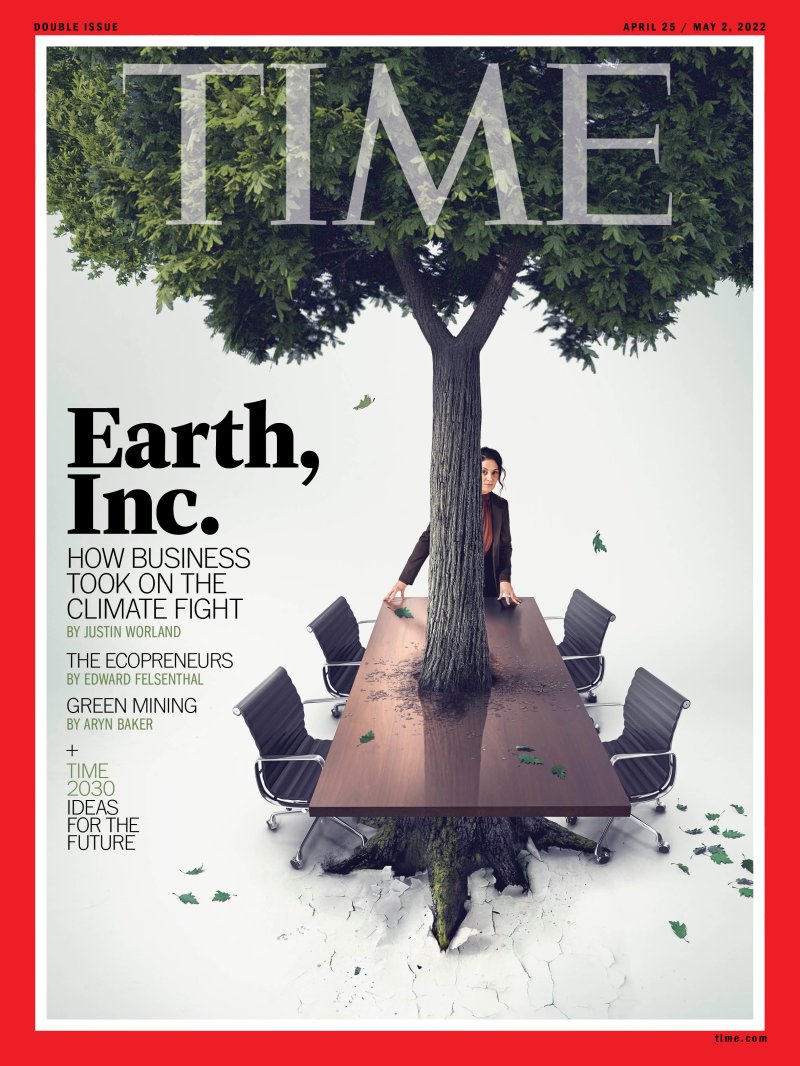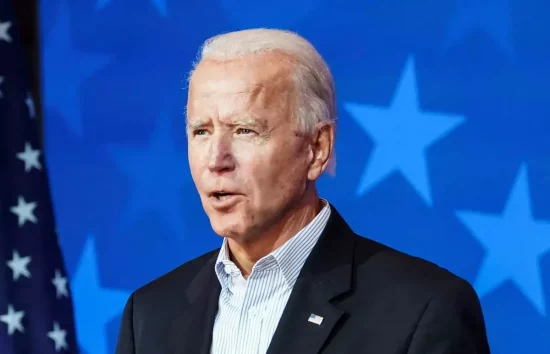n a brisk Monday in Houston in early March, dozens of protesters gathered across the street from the giant Hilton hotel hosting CERAWeek, the energy industry’s hallmark annual conference. Their signs accused the corporate executives inside of betraying humanity in pursuit of financial return. STOP EXTRACTING OUR FUTURE, read one. PEOPLE OVER PROFIT, read another. Two days later, inside a standing-room-only hotel ballroom, Jennifer Granholm, the U.S. secretary of energy, offered a different message to the executives: the Biden Administration needs your help to tackle climate change. The scene encapsulated this moment in the fight to address global warming: some of the most ardent activists say that companies can’t be trusted; governments are saying they must play a role.
They already are. The U.S. Department of Energy has partnered with private companies to bolster the clean energy supply chain, expand electric-vehicle charging, and commercialize new green technologies, among a range of other initiatives. In total, the agency is gearing up to spend tens of billions of dollars on public-private partnerships to speed up the energy transition. “I’m here to extend a hand of partnership,” Granholm told the crowd. “We want you to power this country for the next 100 years with zero-carbon technologies.”
Across the Biden Administration, and around the world, government officials have increasingly focused their attention on the private sector—treating companies not just as entities to regulate but also as core partners. We “need to accelerate our transition” off fossil fuels, says Brian Deese, director of President Biden’s National Economic Council. “And that is a process that will only happen if the American private sector, including the incumbent energy producers in the United States, utilities and otherwise, are an inextricable part of that process—that’s defined our approach from the get go.”

ΕΙΔΗΣΕΙΣ ΣΗΜΕΡΑ
- Πώς η Καρυστινού έχασε την «ασυλία» και μπήκε στο κάδρο της υπερδεξιάς
- Γιώργος Αλεξανδράτος: Προωθούμε την εξωστρέφεια, την καινοτομία και τη διεθνή παρουσία της ελληνικής ναυτιλίας
- ΕΑΣ – Λαύριο: Ολο το παρασκήνιο της ακύρωσης του διαγωνισμού – Το «στοπ» Δένδια και η σύγκρουση συμφερόντων
- Άμυνα ζώνης στο Χρηματιστήριο Αθηνών, εν μέσω γεωπολιτικών εντάσεων










